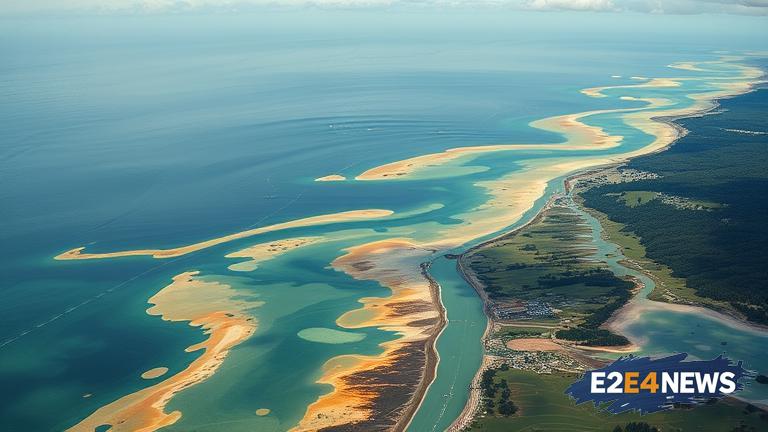A recent investigation has uncovered a disturbing trend of dead zones in the waters off the central coast of British Columbia, Canada. These dead zones, which are areas where marine life is scarce or nonexistent, have been found in various locations throughout the region. The cause of these dead zones is still unknown, but scientists suspect that a combination of factors, including climate change, pollution, and overfishing, may be to blame. The dead zones are not only a concern for the health of the marine ecosystem, but also for the local communities that depend on the ocean for their livelihood. The central coast of British Columbia is known for its rich marine biodiversity, with a wide range of species calling the area home. However, the discovery of these dead zones has raised concerns that the region’s ecosystem may be under threat. Scientists are working to determine the cause of the dead zones, but it is a complex and challenging task. The dead zones are not limited to a single location, but rather are scattered throughout the region. This has made it difficult for scientists to pinpoint a single cause, and instead, they are considering a range of factors that may be contributing to the problem. Climate change is one possible culprit, as it is known to be having a profound impact on marine ecosystems around the world. Rising ocean temperatures and acidification are just two of the ways in which climate change is affecting the health of the ocean. Pollution is another possible factor, as the central coast of British Columbia is home to a number of industrial activities, including logging and mining. These activities can result in the release of pollutants into the water, which can have a devastating impact on marine life. Overfishing is also a concern, as the removal of key species can have a ripple effect throughout the ecosystem. The local communities that depend on the ocean for their livelihood are particularly concerned about the discovery of the dead zones. Many of these communities have been fishing and harvesting seafood in the area for generations, and the thought of the ocean being unable to support their way of life is a daunting one. The Canadian government has pledged to take action to address the issue, but it remains to be seen what steps will be taken. In the meantime, scientists will continue to study the dead zones, in an effort to determine their cause and find a solution. The discovery of the dead zones is a sobering reminder of the importance of protecting the health of our oceans. The ocean plays a critical role in regulating the planet’s climate, and its health is essential for the well-being of our planet. The central coast of British Columbia is just one example of the many regions around the world that are facing challenges related to the health of their marine ecosystems. It is a complex and challenging issue, but one that must be addressed in order to ensure the long-term health of our planet. The investigation into the dead zones is ongoing, and it is likely that more will be learned about the cause of the problem in the coming months and years. For now, the discovery of the dead zones serves as a reminder of the importance of protecting the health of our oceans, and the need for continued research and conservation efforts. The dead zones are a wake-up call, and it is up to us to take action to address the issue and ensure the long-term health of our planet. The central coast of British Columbia is a unique and special place, and it is essential that we take steps to protect it. The discovery of the dead zones is a call to action, and it is up to us to respond. The health of our oceans is essential for the well-being of our planet, and it is up to us to take steps to protect it. The investigation into the dead zones will continue, and it is likely that more will be learned about the cause of the problem in the coming months and years. For now, the discovery of the dead zones serves as a reminder of the importance of protecting the health of our oceans, and the need for continued research and conservation efforts.
